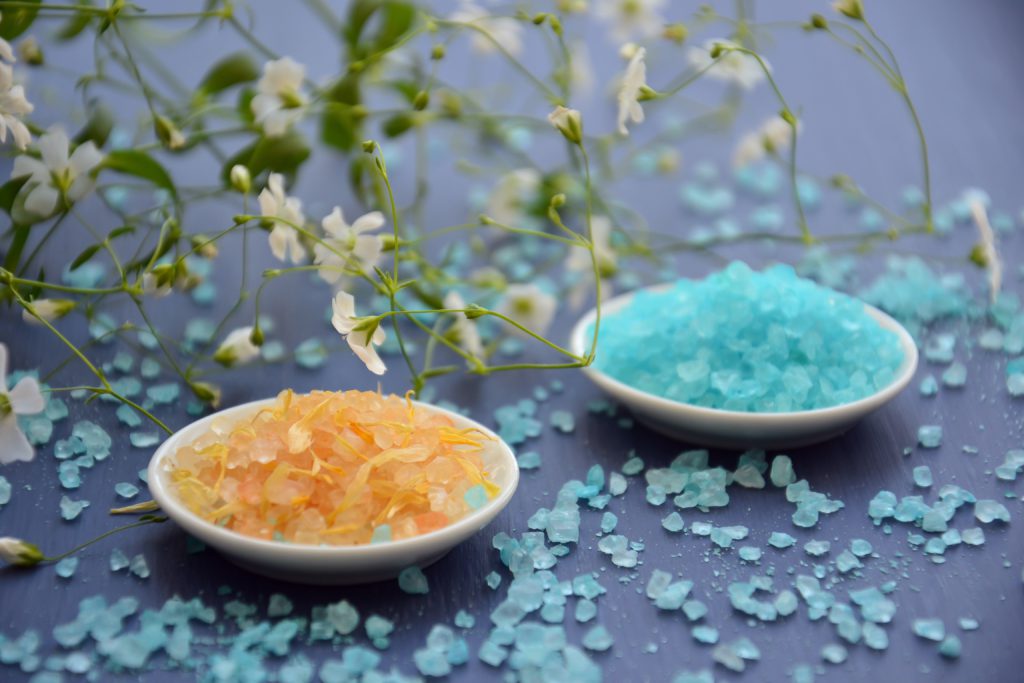When an acid reacts with a base, a salt is formed. Some salts are soluble while some salts are insolube. Knowing which salts are insoluble can help us design an appropriate experiment to prepare the salt we desire.
HaX(aq) + M(OH)b(aq) → MaXb(aq/s) + H2O(l)
The below will summarise the soluble and insoluble salts.
- All K+, Na+, NH4+
- All NO3–
- All HCO3–
- All X– (Cl–, Br–, I–) except Ag+, Pb2+
- All SO42- except Pb2+, Ca2+, Ba2+
- Ag+, Pb2+ halides (Cl–, Br–, I–)
- Pb2+, Ca2+, Ba2+ sulphates (SO42-)
- All CO32- except K+, Na+, NH4+
All hydroxides (except K+, Na+) are insoluble in water. Calcium hydroxide is slightly soluble in water to form limewater.
However, when some metal ions are in excess hydroxide or ammonia solution, they can form stable complexes, which are soluble in water.
In excess NaOH(aq):
Al(OH)3(s) + OH–(aq) → [Al(OH)4]–(aq)
Zn(OH)2(s) + 2OH–(aq) → [Zn(OH)4]2-(aq)
Pb(OH)2(s) + 2OH–(aq) → [Pb(OH)4]2-(aq)
In excess NH3(aq):
Zn(OH)2(s) + 4NH3(aq) → [Zn(NH3)4]2+(aq) + 2OH–(aq)
Cu(OH)2(s) + 4NH3(aq) → [Cu(NH3)4]2+(aq) + 2OH–(aq)
Ag2O(s) + H2O(l) + 4NH3(aq) → 2[Ag(NH3)2]+(aq) + 2OH–(aq)
Try the question below and see if you can get the answer!
Which of the following salt is soluble in water?
✅ Correct
All ammonium salts are soluble in water. Plus, all salts containing nitrate ion are soluble.
❌ Try again
Most hydroxides are insoluble in water. The exceptions are potassium and sodium. Calcium hydroxide is slightly soluble in water.
All silver halides are insoluble. The colour of the halide salt is more yellow down the group.
Three common sulphate salts are insouble. They are calcium, barium and lead(II) sulphate.

